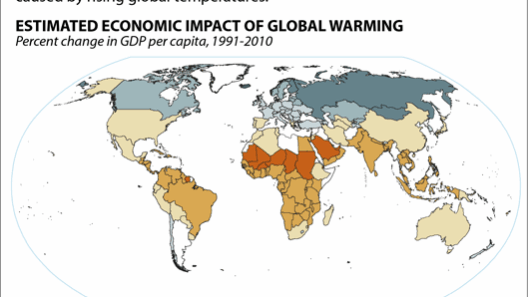The phenomenon of climate change presents an intricate tapestry of scientific understanding and political ideology. Despite the overwhelming consensus among climate scientists regarding the reality of global warming, a significant faction within the Republican Party continues to exhibit skepticism. This denial is not merely a rejection of scientific evidence; it is entwined with broader socio-political dynamics that shape the party’s identity and electoral strategies. The nexus of politics and climate science creates a convoluted landscape where ideology often trumps empirical data.
At the heart of the issue lies the metaphor of the “climate chasm,” a divide that separates scientific understanding from political acceptance. This chasm has been fortified by the historical alignment of the Republican Party with free-market principles and a reticence to endorse expansive environmental regulations. Such regulations are often viewed as an infringement upon personal liberties and economic growth. Consequently, acknowledging climate change necessitates an introspection that conflicts with deeply entrenched ideological beliefs.
The roots of climate skepticism within Republican circles can be traced back to the late 20th century, when environmentalism began to gain traction. The rise of environmental advocacy was juxtaposed against a backdrop of economic liberalization. Free-market proponents, fearing that climate policies would provoke economic stagnation, positioned themselves against what they termed “alarmist” climate science. This antagonism towards environmental regulation was not only a defense of industry but also a rallying cry for voters who prioritize economic autonomy over ecological stewardship.
In political discourse, the term “climate change” has morphed into a flashpoint that ignites passionate debate. The portrayal of climate change as a partisan issue is emblematic of a larger trend in American politics, whereby issues are framed within ideological binaries. This framework simplifies the complexities of climate science into a dichotomy of ‘believers’ and ‘skeptics.’ Such polarization undermines productive dialogue and instead breeds an environment ripe for misinformation and ideological entrenchment.
A pivotal aspect of the climate chasm is the role of media and communication. In an age where information is ubiquitous yet often unreliable, the dissemination of climate skepticism has flourished. Certain media outlets, particularly those aligned with conservative viewpoints, perpetuate narratives that challenge the scientific consensus. By showcasing dissenting voices or highlighting uncertainties, these outlets foster an impression that climate change is a scientifically unsettled phenomenon, further entrenching skepticism within the Republican base.
The implications of this denial are profound. The perpetual questioning of climate science stymies governmental action on environmental issues and fosters a culture of complacency. For instance, the withdrawal from international agreements such as the Paris Accord was emblematic of a broader retreat from global climate leadership. This withdrawal not only signified a renunciation of scientific consensus but also conveyed a message of isolationism that reverberates through international relations.
Moreover, the political motivation behind climate skepticism is further exacerbated by the influence of powerful lobbying groups. The fossil fuel sector plays a pivotal role in shaping Republican attitudes toward climate change. This industry’s substantial financial resources facilitate the propagation of skepticism, ensuring that voices against climate action resonate within the halls of power. Campaign contributions and lobbying efforts create patently intertwined relationships between politicians and industries, which can lead to policy decisions that prioritize economic interests over environmental imperatives.
Despite the entrenched skepticism, there exists a burgeoning recognition among some Republicans that climate change is a pressing issue. This paradigm shift is partly driven by the increasing visibility of climate impacts, such as severe weather events and rising sea levels. It has become increasingly difficult to ignore the economic repercussions of climate inaction. A cadre of Republican leaders and organizations acknowledges the necessity of finding free-market solutions to promote environmental sustainability without sacrificing economic growth.
As we venture further into the 21st century, the urgency of addressing climate change continues to escalate. Rising temperatures, shifting weather patterns, and ecological degradation present a formidable challenge that transcends partisanship. The metaphor of the “climate chasm” poses a crucial question: how can this divide be bridged to foster a cohesive response to climate change?
To address the issue effectively, there is a need for bipartisan collaboration that transcends ideological divides. Sustainable leadership requires a commitment to science-based policy that respects both environmental integrity and economic viability. Political leaders must strive to dismantle the barriers of distrust that inhibit productive dialogues about climate solutions.
Furthermore, empowering constituents with factual knowledge about climate science can foster a more informed electorate that is less susceptible to misinformation. Education and outreach must be prioritized, particularly in communities that have historically aligned with climate skepticism. Creating space for constructive dialogue between differing perspectives can help build consensus and mobilize collective action.
In conclusion, the dialogue surrounding climate change has been intricately woven into the fabric of American political identity, particularly among Republicans. Escaping the “climate chasm” demands innovative approaches that embrace dialogue, understanding, and collaboration. Only through a concerted effort to merge scientific understanding with political action can we chart a sustainable path forward in the face of one of humanity’s greatest existential threats.






